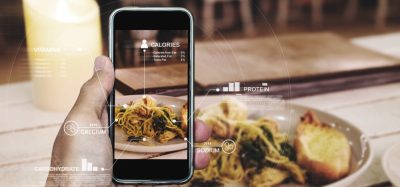Recall roundup: salad kits, fruit mix, pot noodle and soya protein
- Like
- Digg
- Del
- Tumblr
- VKontakte
- Buffer
- Love This
- Odnoklassniki
- Meneame
- Blogger
- Amazon
- Yahoo Mail
- Gmail
- AOL
- Newsvine
- HackerNews
- Evernote
- MySpace
- Mail.ru
- Viadeo
- Line
- Comments
- Yummly
- SMS
- Viber
- Telegram
- Subscribe
- Skype
- Facebook Messenger
- Kakao
- LiveJournal
- Yammer
- Edgar
- Fintel
- Mix
- Instapaper
- Copy Link
Posted: 11 December 2019 | Sam Mehmet (New Food) | No comments yet
Food and beverage products are recalled due to reasons ranging from contamination to incorrect labelling, and here is New Food’s roundup of the most recent cases.
E. coli outbreak linked to Fresh Express brand Sunflower Crisp Chopped Salad Kits
The US Food and Drug Administration (FDA), Centers for Disease Control and Prevention (CDC), US state health authorities and Canadian federal partners are investigating an outbreak of illnesses in the US and Canada caused by E. coli O157:H7. Epidemiological information has indicated that Fresh Express brand Sunflower Crisp Chopped Salad Kits are a likely source of this outbreak.
Consumers have been advised to not eat Fresh Express brand Sunflower Crisp Chopped Salad Kits with UPC 0 71279 30906 4, beginning with lot code Z, and a best before date up to and including 7 December 2019.
The Public Health Agency of Canada has also issued an External Link Disclaimer as guidance to consumers in Canada.
According to the CDC, as of 9 December 2019, eight people infected with this outbreak strain of E. coli O157:H7 have been reported from three states. The case patients report that illnesses started on dates ranging from 5 November 2019 to 15 November 2019. This outbreak strain found in case patients is different from the outbreak strain of the larger E. coli O157:H7 outbreak linked to romaine from the Salinas, California growing region.
Preliminary information indicates that the romaine lettuce in the salad kits eaten by some sick people may have contained romaine from the Salinas growing region, though the romaine and other ingredients in the kit may have come from another growing region as well.
Authorities are investigating the source of the ingredients in the kits and are trying to determine which ingredient may have been contaminated.
Tailor Cut Produce recalls Fruit Luau fruit mix
FDA and the Pennsylvania Department of Health (DOH) are investigating an outbreak of illnesses caused by Salmonella Javiana in Pennsylvania. Epidemiologic and traceback evidence indicate that fruit mix with cantaloupe, honeydew, pineapple, and grapes from Tailor Cut Produce of North Brunswick, New Jersey, are a potential source of this outbreak. The firm recalled the fruit mix, called Fruit Luau, as well as cut honeydew, cut cantaloupe and cut pineapple products on 7 December. Food service and institutional food operators should not sell or serve the recalled products.
Tailor Cut Produce reports that their products may be found in restaurants, banquet facilities, hotels, schools and institutional food service establishments in Delaware, New Jersey, New York, and Pennsylvania.
Because the recalled products may have been distributed to nursing homes, schools, hospitals and other facilities that cater to vulnerable populations, it is important that these facilities do not sell or serve them. Please consult with your distributor to confirm the source of the fruit mix and cut fruit used in your operation.
DOH has reported that it is investigating 33 laboratory-confirmed illnesses of Salmonella at four healthcare facilities in southeast Pennsylvania. Salmonella Javiana has been identified among cases at three of four facilities. According to the Pennsylvania DOH, the epidemiologic evidence collected thus far indicates that the Fruit Luau fruit mix (which contains cantaloupe, honeydew, pineapple and grapes) from Tailor Cut Produce is a potential source of the illnesses. The state’s review of invoices shows that a common food eaten by many case patients was this fruit mix.
FDA has activated a team to coordinate its outbreak investigation. On 6 December 2019, the FDA and the Pennsylvania DOH shared the results of the investigation thus far with the firm, and the firm’s leadership stated that they would work with FDA to implement a recall of the products. On 7 December 2019, Tailor Cut Produce announced a recall.
The recalled fruit products were distributed in Pennsylvania, New Jersey, New York and Delaware between 15 November and 1 December 2019.
The product comes in 2/1 gallon cases with a date of production stamped on the side.
Further information can be found on the FDA website.
Unilever recalls Pot Noodle Beef & Tomato
Unilever is recalling one batch of Pot Noodle Beef & Tomato because it allegedly contains celery and mustard which are not declared on the label. This means the product is a possible health risk for anyone with an allergy to celery and/or mustard.
No other Unilever products are known to be affected.
Unilever is recalling the above product from customers and has contacted the relevant allergy support organisations, which will tell their members about the recall. The company has also issued a point-of-sale notice to its customers. These notices explain to customers why the product is being recalled and tell them what to do if they have bought the product.
Further information can be found on the Food Standard Agency’s (FSA) website.
Oumph! recalls ‘The Chunk’ from ASDA, Holand & Barrett and Tesco
Oumph! Is recalling its ‘The Chunk’ due to a packaging error. Some packets may contain a different product containing mustard, which is not declared on the label. This means the product is a possible health risk for anyone with an allergy to mustard. The product is sold in ASDA, Holland & Barrett and Tesco stores only.
No other Oumph! products are known to be affected.
Oumph! is recalling the above product from customers and has been advised to contact the relevant allergy support organisations, which will tell their members about the recall. The company has also issued a point-of-sale notice to its customers. These notices explain to customers why the product is being recalled and tells them what to do if they have bought the product.
Further information can be found on the FSA website.









